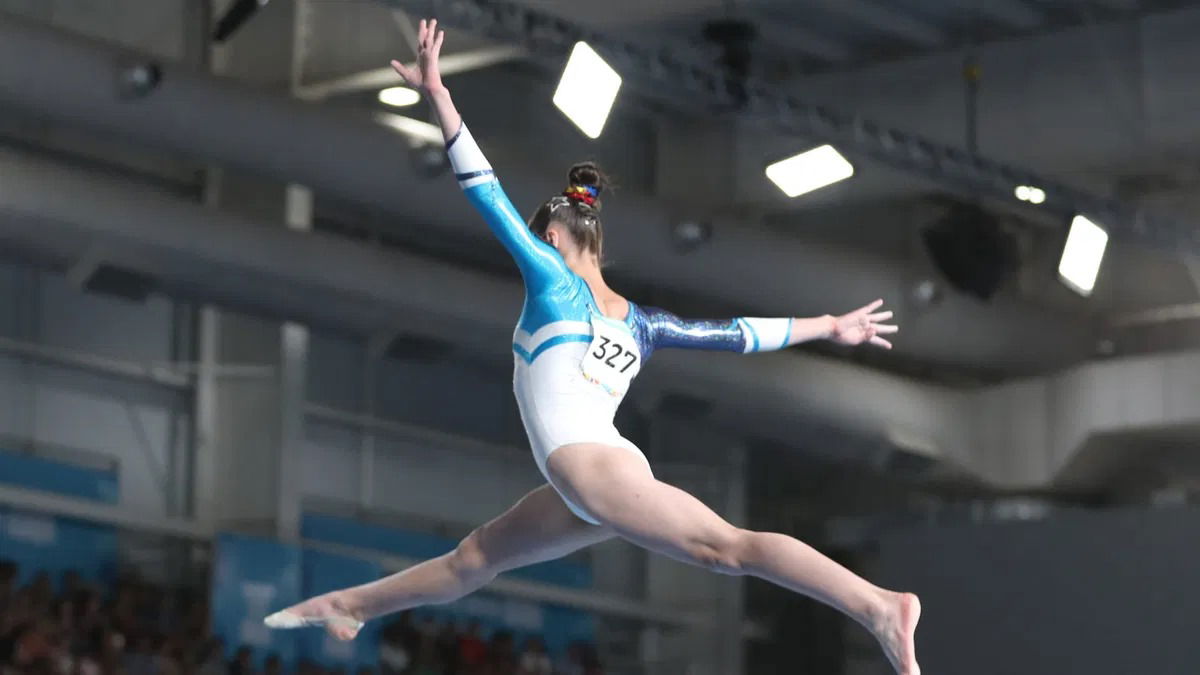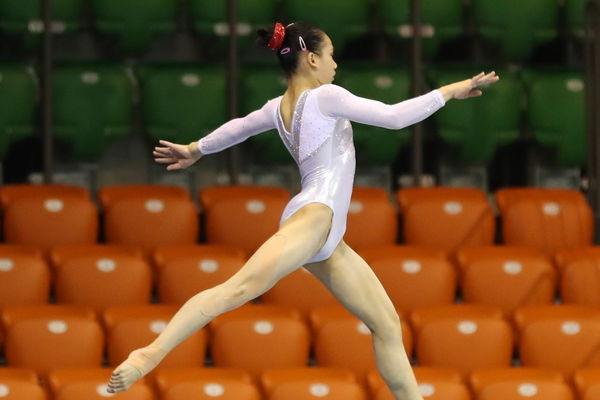

Gymnastics as a sport is usually performed by younger athletes, who start their training often at a very young, tender age. The sport has been built on the coattails of gymnasts like Nadia Comaneci, who was 14 when she won her first medal at the Olympics, and Dominique Moceanu, who won hers when she was 15. This might seem quite glorious on the surface. However, problems sometimes do arise from these situations, as these young prodigies are quite dependent on their coaches.
Watch What’s Trending Now!
In some of these instances, the coaches get so concentrated on winning competitions that they stop caring about the athlete’s well-being, which takes a toll on these young gymnasts. There has been an alarming rise in such confessions, which unfortunately doesn’t seem to be stopping anytime soon. Now, a former German junior gymnast has come forward with her own experience, where she detailed what she went through while training.
Catalina Santos, in an Instagram post, has talked about how she once used to put in long hours during a week for gymnastics training, sacrificing everything else in her life, including her loved ones. The gymnast used to believe that all of this was required to achieve success in the sport at that time. But, after she ended her career, the gymnast realized that a lot of things that happened to her were wrong and shouldn’t have taken place.
ADVERTISEMENT
The gymnast was quite dependent on her coaches and would do what she was told, which would lead to mental and physical damage. This led to her developing major long-term problems, including an eating disorder. Moreover, her mind still struggles to express thoughts and feelings coherently. All of this led to her quitting the sport at 14, as her body and mind just couldn’t take it anymore.
View this post on Instagram
This was also caused by an injury, but she just didn’t have the capacity to return to the mat. “The overload from training and the pressure for success, was huge. During my herniated disc incident, I took a lot of medication to somehow keep fighting until eventually it stopped. I carry many scars from this sport to this day. Both physically and mentally.”
ADVERTISEMENT
Eventually, she decided to quit. Now, after a long time of staying quiet, the gymnast decided to speak out as she finally mustered up the courage to do so. “At that time, I didn’t feel ready to say anything, and the wounds ran so deep that I couldn’t either. For a long time, I believed that I’d just give up because I was too weak. Today I know that all the hurdles have only made me stronger. With this post, I want to help everyone going through a difficult time find their own strength. Thank you so much for the support of everyone who has been with me on my journey!❤️” Thus, the gymnast shared her harrowing experience, which sounded quite uncomfortable for her. This isn’t the first such instance, as many gymnasts before have also shared their experiences and struggles with mental health caused by their presence in the sport.
ADVERTISEMENT
Another recent example of mental health decline in gymnastics
There have been numerous other cases of gymnasts coming forward citing reasons for leaving the sport because of mental health issues. One such example that comes to mind is Meolie Jauch, who retired from gymnastics a few days ago. She announced her decision on December 18th, 2024, in an Instagram post. The gymnastics athlete had suffered a career-altering ACL injury in March, which made her miss most of the season.

ADVERTISEMENT
Jauch’s recovery also didn’t go too well, as it took longer than expected. This affected her mental state a lot, which influenced her decision to call it a day from elite gymnastics. The German gymnast wrote, “I listen to my inner voice and quit elite sport. Not because I don’t want to fight anymore, not because my body can’t fight anymore—but because mentally it’s no longer possible.” It was evident that both she and her fans were completely devastated to hear this, but in the end, her mental well-being came first.
Top Stories
Josh Allen Makes Lifetime Buffalo Announcement as Pregnant Hailee Steinfeld Receives Bills QB’s Clear Family Plan

NTSB Appeals for Greg Biffle’s Wife’s Alleged In-Flight Text Messages as Crash Investigation Heats Up

Travis Kelce Reveals Real Reason Behind Decision to Snub the Media Amid Retirement Rumors

Sean Strickland Passes on UFC White House Opportunity in Yet Another Bold Confession

Donald Trump Issues Moving Message of Condolence for NASCAR’s Greg Biffle & Family During North Carolina Address

Another Almost Fatal Disaster Surfaces From Statesville Airport Amidst Ongoing Greg Biffle’s Crash Investigation

“The hall, which was my home for so long, is now a place where I no longer feel so comfortable. After ten years of competitive sports—full of good events but also some tearful and painful ones—I am now starting a new, completely different phase. It won’t be easy to fit into ‘normal everyday life’, but I’m looking forward to trying new things and exploring the world as Meolie.” wrote Meolie Jauch in another Instagram post. Thus, the gymnast is one of the recent examples of gymnasts quitting the sport for their mental health. Hopefully, this will start a more open dialogue about the problem in the sport, and subsequently, efforts will be taken to address the issues.
ADVERTISEMENT
ADVERTISEMENT
ADVERTISEMENT
ADVERTISEMENT

